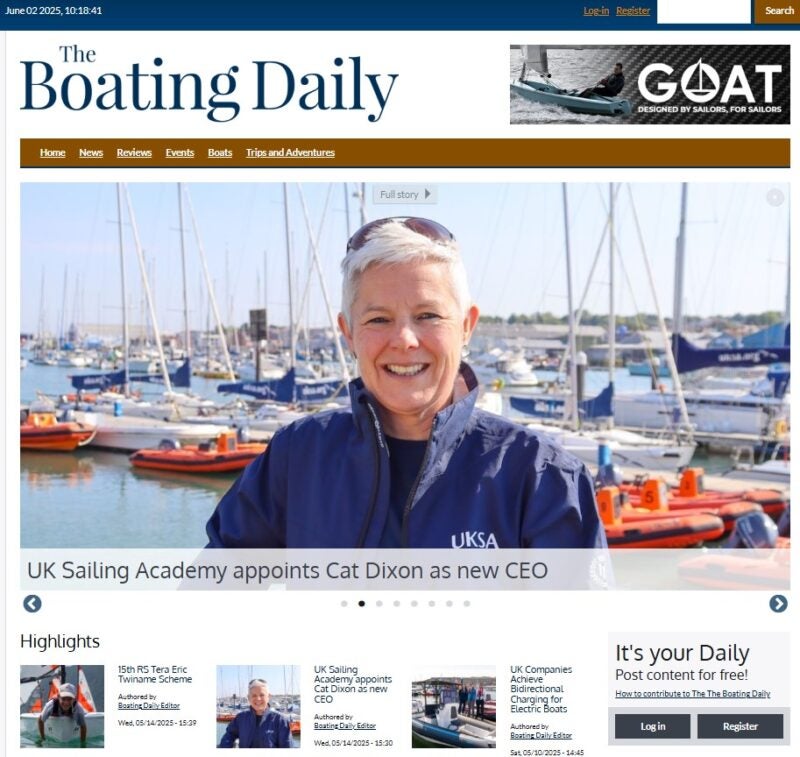
Former regional newspaper editor Marc Astley now runs a growing portfolio of 14 online titles after switching from local news to lifestyle verticals.
Astley has yet to find the pot of gold at the end of his quest to make journalism pay in the digital age, but his passion and persistence are showing signs of paying off.
Astley left school at sixteen, without any O-Levels, to become a semi-professional speedway rider. After losing three friends to the sport in a year, he joined a band – The Sinatras – which went fairly well for four years (they recorded an album, they supported Deacon Blue, Billy Bragg supported them) until it fell apart.
He went back to education, got himself some O-Levels, and was halfway through his A-Levels when some work experience at a local paper resulted in a job at the Leicester Mercury.
What followed is a story typical of nineties and noughties local journalism – bouncing his way across the country’s regional papers, zig-zagging his way up from reporter, to chief reporter, to deputy news editor, to news editor, and eventually an editorship, at Exeter-based daily – theExpress & Echo. That lasted six years before, in a story typical of 2010s local journalism, “the wheels fell off.”
The paper’s newsroom had gone from a staff of 67 to fewer than 20 (it now boasts three), and what was once a thriving daily was a struggling weekly. Astley had promised himself he’d quit when it stopped being fun, and in 2011 the job was comfortably meeting that test, so left to establish his own PR firm.
He made it a full four months before dipping his toes back into the steadily evaporating waters of local journalism. The Exeter Daily, launched in May 2012, was supposed to be the first of a new kind of online local newspaper, where most of the content, although monitored by an in-house team, was user-generated.
More launches were promised copying the Exeter Daily model, but while the Exeter and Devon editions survive to this day – Astley was not able to replicate their success in other markets.
While wondering what to do next, a friend happened to mention that his wife wanted to set up a lifestyle blog, and was wondering if Astley could help. He helped her set up a magazine-esque website, and after six months, The Lifestyle Daily was going well enough that she wanted to launch a second, parenting-focused site. Today, Astley’s mini-empire has expanded to fourteen sites, including publications specialising in home-educating, football, women’s football, property, pets and more.

His latest, The Boating Daily, will be the first run by someone with experience in journalism. The rest of the sites have been driven by people who just approached Astley explaining that though they might not have any of the formal qualifications traditionally associated with publishing articles online, they did have some expertise and, perhaps more importantly than that, a lot of passion.
(He was keen to stress during our interview that he’s always open to approaches from would-be partners that might be, say, reading this article in the Press Gazette.)
What happens from here is that if Astley is sufficiently convinced by his would-be business partner, he builds them a website (which he’ll continue to maintain, patch, update, etc, for free). The partner keeps the first £500 they make every month, after which everything is split 50/50. He gives some brief training and asks that they send him everything before they post it for the first month or so, just while they’re finding their feet, but after that they’re pretty much free to write and commission as they please.
Astley does this in tandem with other business interests which include running an eco beach clothing company and freelance journalism. No one running any of the sites is yet making a full-time salary. But the company as a whole – The Daily Ltd – is said to be turning over six figures a year now, and Astley’s got his sights on a roster of 30 sites within the next five years.
There’s a little bit of money coming in through the conventional advertising model, but the vast majority comes from sponsored and affiliate content – articles that are authored by or in partnership with businesses who pay the sites for the exposure. Those articles make up around 5% of the site’s total output, and Astley said they only accept around 5% of those pitched to them by businesses – if they selected something that didn’t fit neatly into what they were already producing, the search traffic would suffer accordingly.
The rest of the articles on the sites are a mixture of news, reviews and views.
When I put it to Astley that what he’s facilitating seems to be a sort of halfway house between traditional journalism and the modern influencer sphere that has replaced much of it, he says the idea had never occurred to him until just now, but the shoe does seem to fit.
“What we do will never replace professional journalism, and we don’t pretend that it will,” he says. “But I think a lot of local papers have lost connection with their communities completely… we need to stop being so stuffy about what we do. Being more open-minded enabled me to recruit people who weren’t trained journalists and feel comfortable with that, and I think our way – engaging people who really care and want to write about what they’re passionate about – is something that could support some very strapped and stressed newsrooms.”
Email pged@pressgazette.co.uk to point out mistakes, provide story tips or send in a letter for publication on our "Letters Page" blog
